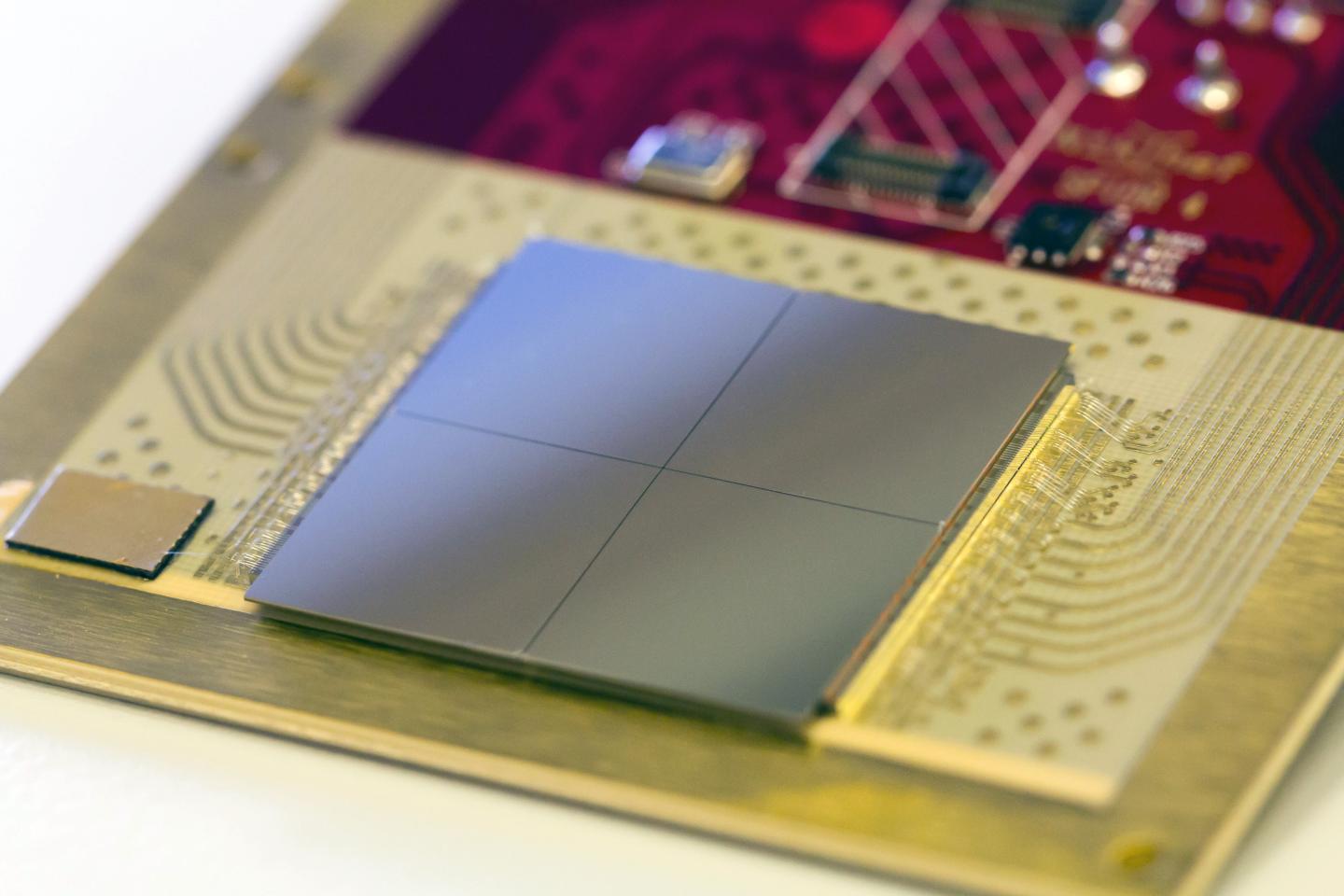One can choose between several data acquisition modes depending on the application requirement. In data driven mode, the arrival time (Time-of-Arrival – ToA) and charge deposit information (Time-over-Threshold – ToT), as well as coordinates of the active pixel, are provided for each hit. For imaging applications and for calibration, the ASIC can be operated in frame-based mode in either continuous read/write or sequential read/write mode.
Advantages & Applications
Features;
- Pixel size 55μm x 55μm.
- 512 x 448 pixels.
- Readout dead-time-free modes.
- Data-driven or frame-based (sequential or continuous read/write) readout.
- Large sensitive area (6.93 cm2) with almost no dead area (<0.5%).
- Larger chip area and improved time stamp precision and hit rate capability compared to Timepix3.
- 4-side buttable: 3x ‘hidden’ periphery TSV/IO.
Applications
- X-ray and neutron imaging
- Particle track reconstruction
- Electron detectors
- Material analysis
- Synchrotrons
Specifications
|
CMOS |
65nm |
|
Pixel size |
55μm x 55μm |
|
Pixel matrix |
512 x 448 |
|
Time resolution |
~200ps |
|
Charge measurement |
Noise: 80e- rms, Range: 200ke |
|
Minimum operating threshold |
~500e- |
|
Hit arrival timing (ToA) |
LSB=195ps, range: 1.638ms |
|
Readout bandwidth |
20.48 Gbps (4x 5.12 Gbps) |
|
Interface |
3x 147 I/O TSV/Wirebond |
|
Power supply voltage |
1.2V |
|
Power consumption |
~3.5W |
Readout modes
|
Tracking (data driven) |
Imaging (frame-based) |
||
|
Mode |
ToT & ToA |
Mode |
CRW: Pixel Counter (6/16-bit) |
|
Data |
64-bit per hit |
Frame rate |
Up to 89kFPS |
|
Max hit rate |
3.58x106 hits/mm2/s (10.8 KHz / pixel) |
Max hit rate |
~ 5 x 109 hits/mm2/s |

